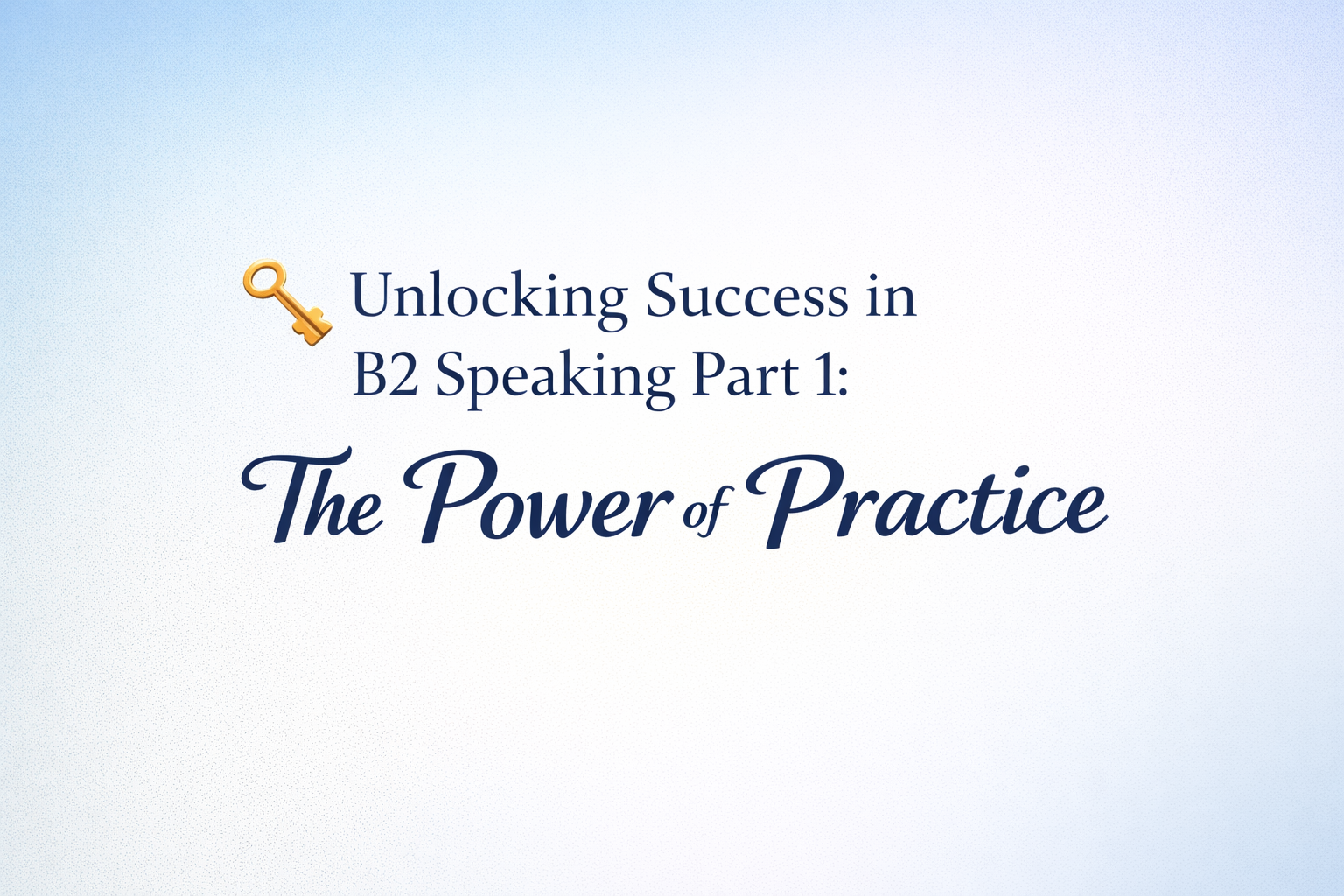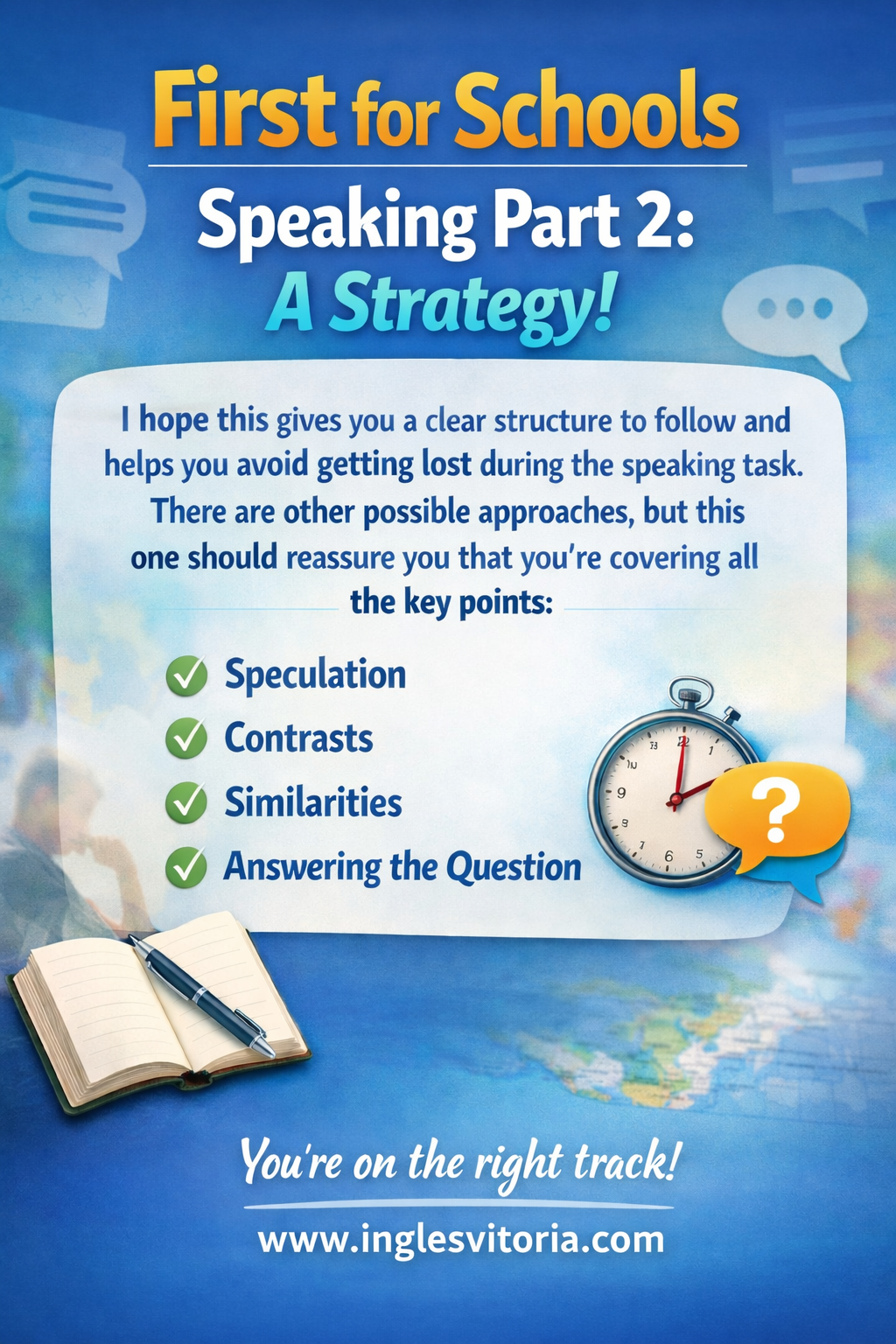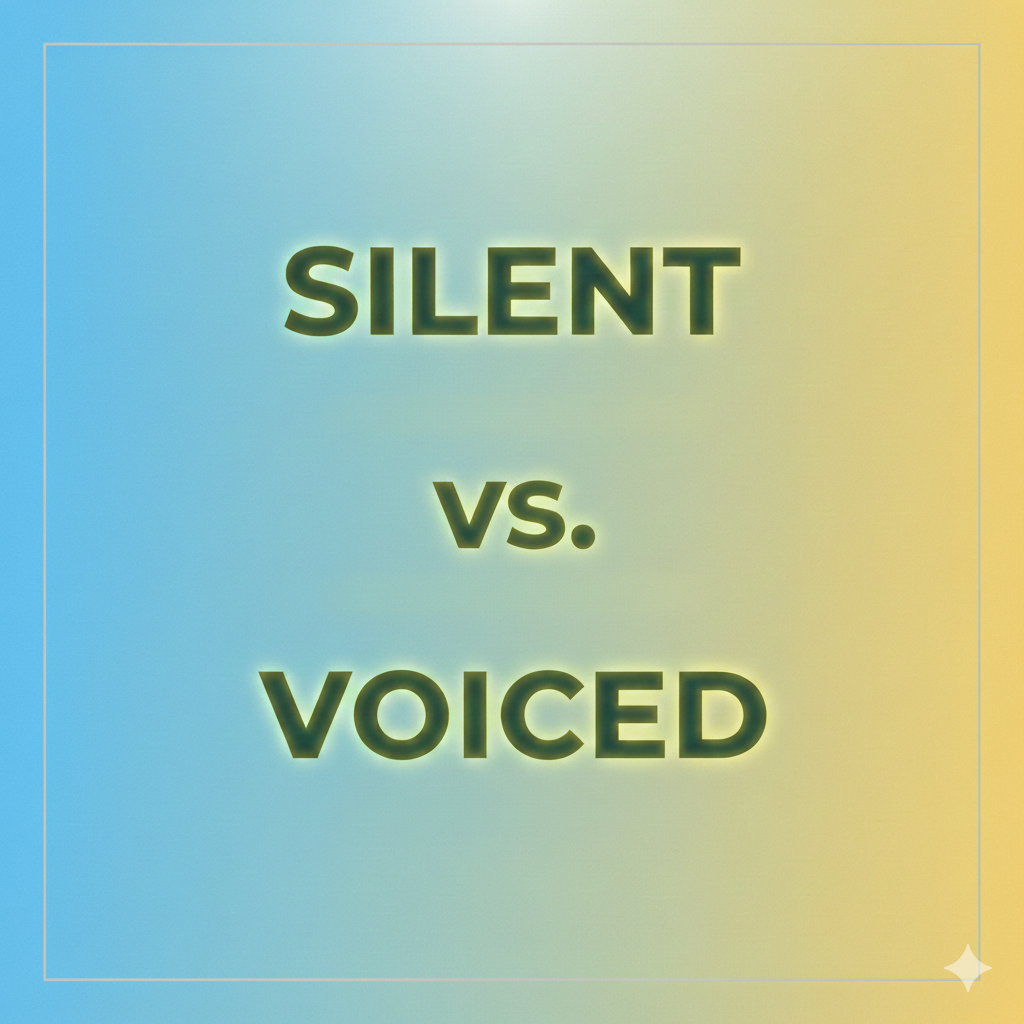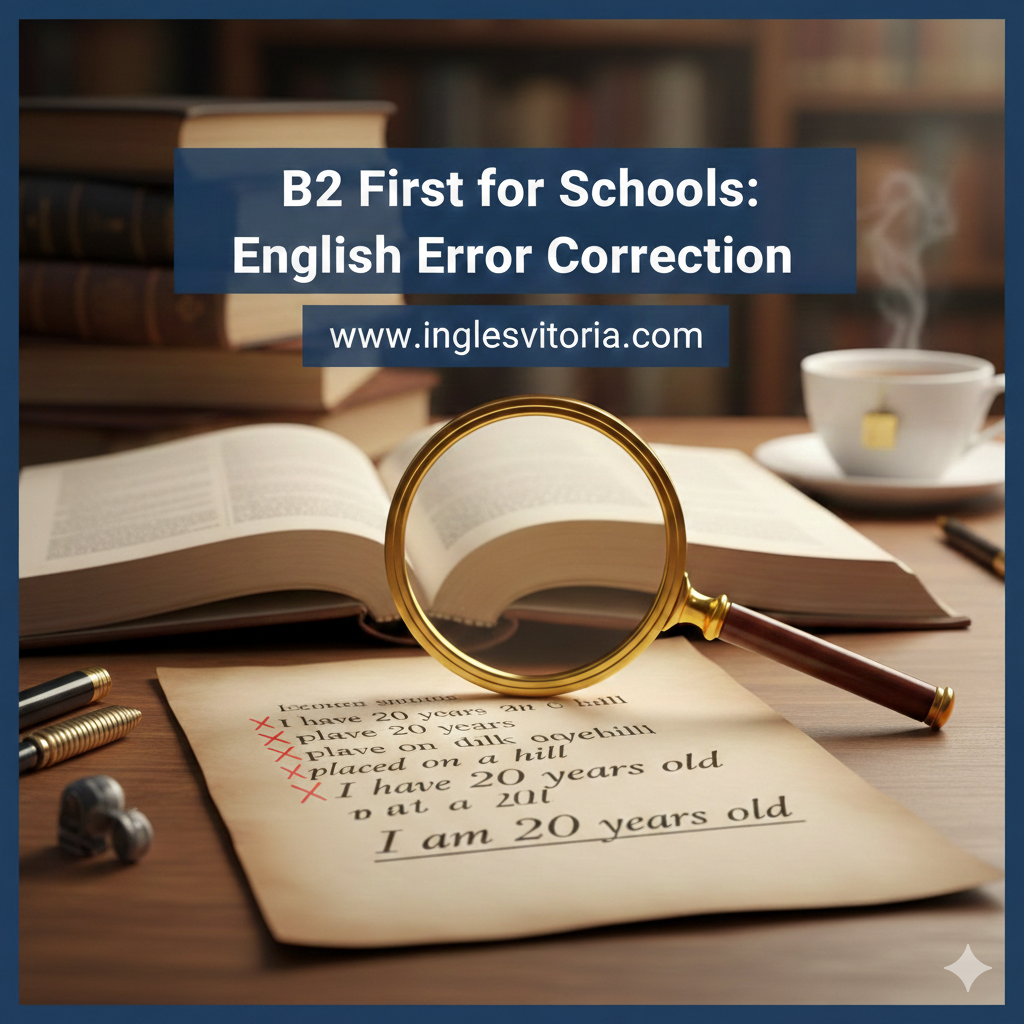B2 First Speaking Part 1 – List of questions to practise
 Preparing for the B2 First speaking exam can feel like a daunting task, but the key to success lies in consistent practice and self-preparation. By regularly engaging with a wide range of questions, you’ll build confidence, fluency, and a natural speaking style. It’s important to remember that while familiarity with common questions is helpful, memorising answers isn’t the goal. Instead, aim for spontaneous expression. Continue reading “B2 First Speaking Part 1 – List of questions to practise”
Preparing for the B2 First speaking exam can feel like a daunting task, but the key to success lies in consistent practice and self-preparation. By regularly engaging with a wide range of questions, you’ll build confidence, fluency, and a natural speaking style. It’s important to remember that while familiarity with common questions is helpful, memorising answers isn’t the goal. Instead, aim for spontaneous expression. Continue reading “B2 First Speaking Part 1 – List of questions to practise”
10 unnatural sentences frequently used by Spanish B2-First for schools
How would you correct the following mistakes?
Think first, before reading the answers below.
- The council prepares visits to local galleries.
- The meeting will be long, so have something to eat before.
- Make the order online and a few minutes after, you will get a confirmation email.
- They will provide you all the information. (something missing)
- We enjoy a higher level of life than previous generations.
- We are trying to encourage teens to practise more sport.
- The castle is placed on the top of a hill.
- He got into the bathroom to brush his teeth.
- Religion is a theme that often sparks debate.
- Coordination is an important point of dancing.
Click here for the key
First for schools Speaking Part 2: a strategy!
 Here are some of the most common mistakes candidates make in B2 First Speaking Part 2, clearly explained, with tips on how to avoid them. Continue reading “First for schools Speaking Part 2: a strategy!”
Here are some of the most common mistakes candidates make in B2 First Speaking Part 2, clearly explained, with tips on how to avoid them. Continue reading “First for schools Speaking Part 2: a strategy!”
Structures that elevate your writing: “Not Only … But Also”
 If you’re aiming to improve your formal writing or essay skills at B2 or C1 level, one grammar structure you need in your toolkit is “not only … but also.” This phrase is a powerful way to emphasise ideas, making your sentences more sophisticated and persuasive.
If you’re aiming to improve your formal writing or essay skills at B2 or C1 level, one grammar structure you need in your toolkit is “not only … but also.” This phrase is a powerful way to emphasise ideas, making your sentences more sophisticated and persuasive.
This structure is used to highlight two related points, showing that they are both true or important. It is commonly used in essays, reports, and academic writing. Continue reading “Structures that elevate your writing: “Not Only … But Also””
Other ways to say “How are you?” and how to respond
 Go Beyond “How are you?”
Go Beyond “How are you?”
When learning English, many students fall back on the same exchange:
A: How are you?
B: Fine, thank you. And you?
That’s correct, but it can sound a bit repetitive — and native speakers often use other expressions in everyday conversation. Here are some great alternatives you can try.
Continue reading “Other ways to say “How are you?” and how to respond”
5 Reporting Verbs that you need to know for B2-First
 Mastering reporting verbs is essential for the B2 First (FCE) exam, These verbs help you report what someone said in a more sophisticated way than just using “said” or “told.”
Mastering reporting verbs is essential for the B2 First (FCE) exam, These verbs help you report what someone said in a more sophisticated way than just using “said” or “told.”
Here are five key reporting verbs you should know—complete with grammar structures and examples. Continue reading “5 Reporting Verbs that you need to know for B2-First”

 Have you ever noticed that English spelling feels like a game of hide-and-seek? Sometimes letters are silent, sometimes not.
Have you ever noticed that English spelling feels like a game of hide-and-seek? Sometimes letters are silent, sometimes not. 



